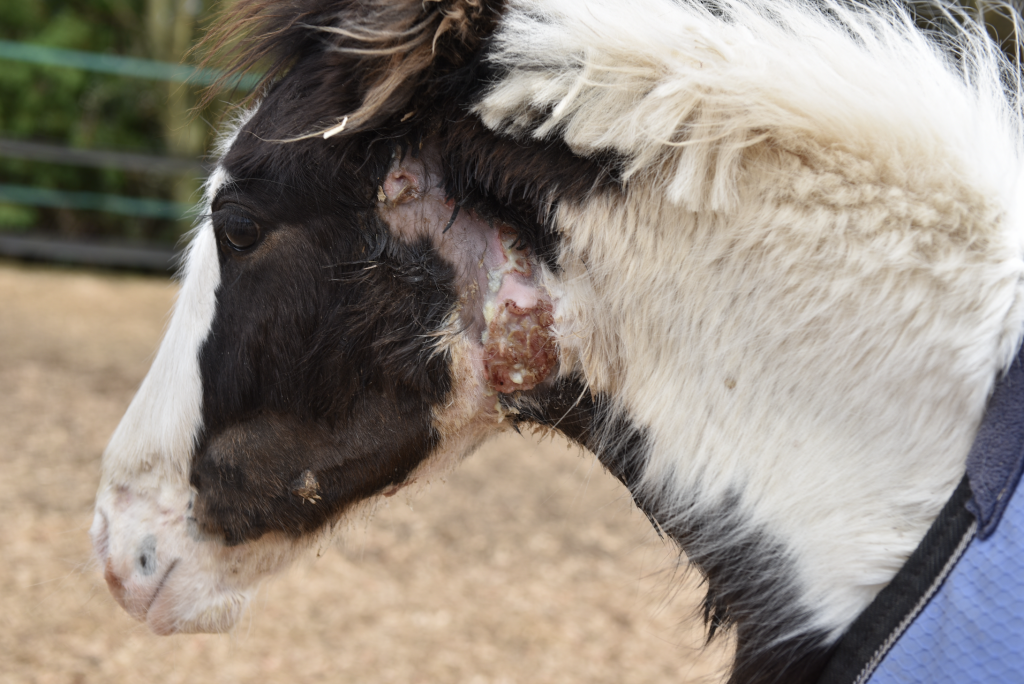
Vets Urged To Raise Awareness Of Strangles
Vets are being urged to raise awareness of strangles and the importance of vaccination alongside good biosecurity measures.
The move follows the release of the recent Surveillance of Equine Strangles (SES) Q4 2022 results which revealed that strangles continues to be a risk to the equine population with 333 positive diagnoses of the disease throughout 2022 with samples submitted by 175 veterinary practices. Moreover, there were 57 positive strangles diagnoses between October and December 2022 from samples submitted by 34 veterinary practices.
SES is a Horse Trust funded surveillance project based at the Royal Veterinary College (RVC) and the SES laboratory network comprises of nine diagnostic laboratories from across the UK.
Sara Barker BVSc CertAVP(EM) MRCVS, equine field support manager at Dechra Veterinary Products, comments: “Strangles continues to be a significant health and welfare issue among the equine population. Biosecurity and quarantine measures, alongside vaccination, are key to help prevent the disease. This includes quarantining horses that are new to a premises for 21 days and implementing biosecurity measures, such as the use of separate equipment and regular hand washing when moving between groups of horses.
The interim SES network research to understand how horse owners are managing their strangles outbreaks and the factors that have led to Streptococcus equi infection revealed that 60% of respondents reported a new horse moving to the premises in the two weeks before a strangles outbreak began, however only 13% of respondents reported that they quarantined and screened new horses on arrival on their premises prior to their outbreak. Fifty percent of respondents implemented quarantine procedures after an outbreak had occurred.
Strangvac is a ground-breaking, new protein-based strangles vaccine for horses and ponies to help protect against strangles, which is caused by the bacterium Streptococcus equi. It is the first and only intramuscular strangles vaccine in the UK and contains recombinant proteins CCE, Eq85 and IdeE from Streptococcus equi. It features DIVA (Differentiating Infected from Vaccinated Animals) capability - the vaccine contains no live bacteria or bacterial DNA, so will not trigger positive culture or PCR tests. The proteins in Strangvac are also different to those used in the antibody ELISA so vaccinated horses will not test positive on the ELISA blood test. These are key features when it comes to outbreak management.
The vaccine, which trials demonstrate can protect up to 94 per cent of horses1, reduces the clinical signs of strangles including a high temperature, coughing, inappetence, difficulty swallowing and changes in demeanour, while also reducing the number of lymph node abscesses. It can be given to foals from five months of age and two injections should be given at a four-week interval. Horses at high risk of Streptococcus equi infection, such as those in livery, should be revaccinated after two months. Based on measured antibody titres, immunological memory was found in horses following repeated vaccination six months after primary vaccination.
Richard Newton, director of epidemiology and disease surveillance at the University of Cambridge Department of Veterinary Medicine, says: "It is great to see Strangvac coming onto the veterinary vaccine market after many years of dedicated and intensive research. Its availability for vets and horse owners represents an exciting and novel additional tool for the prevention and control of this highly significant and still prevalent equine infectious disease. I am especially excited that Strangvac, being based on fusion protein technology rather than killed or modified live bacteria, can be most usefully used alongside state-of-the-art diagnostic assays, which provide rapid and accurate results in confirming natural disease. Use of a vaccine which allows ready differentiation of infected from vaccinated animals (DIVA), unlocks the possibility for this vaccine contributing to not only getting ahead of the threat of strangles but also offering significant improvements in the control of outbreaks, as the spread of infection can be accurately monitored using agent and antibody detection diagnostics, whilst strategic use of Strangvac across the population will raise levels of resistance to disease."
For further information on Strangvac please contact your local Dechra territory sales manager or visit https://www.dechra.co.uk/products/horse/prescription/strangvac.
Reference
- Robinson et al, 2020, Vaccine
More from Dechra

 3 years ago
3 years ago  1420 views
1420 views
